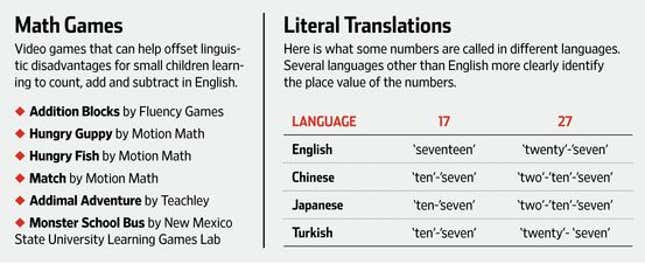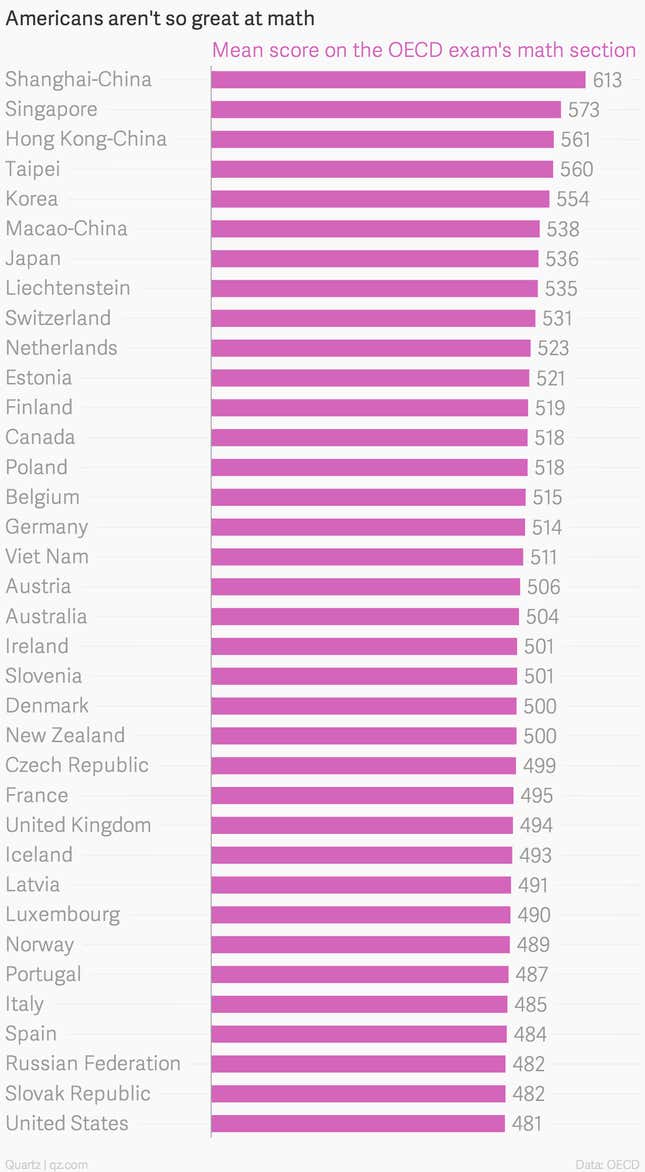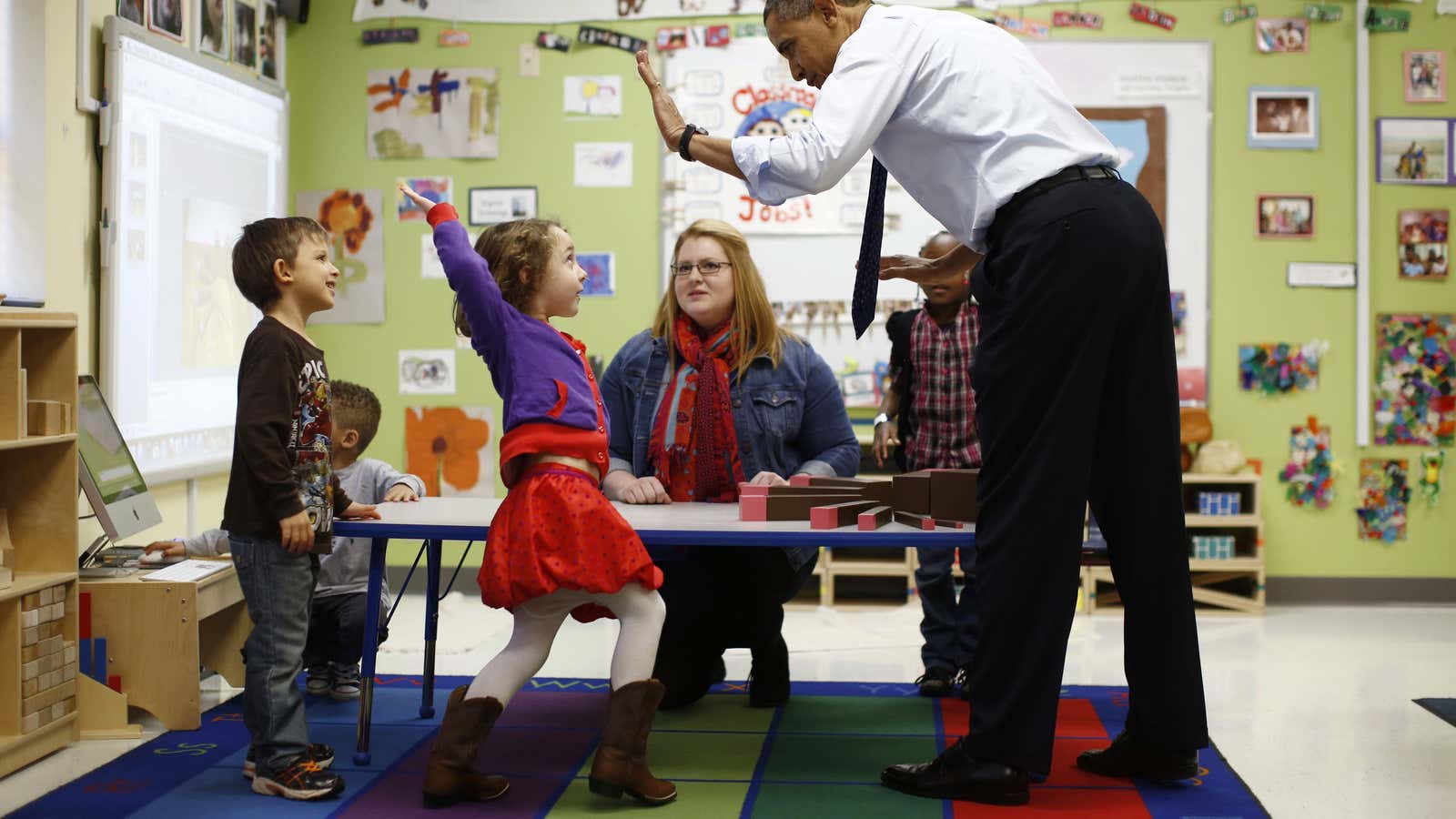When it comes to learning math, children in North America and other countries may face a distinct disadvantage: their language. As the Wall Street Journal reports (paywall), research shows that children learning counting and arithmetic in English have weaker skills than those studying in other tongues—notably, Chinese, Japanese, Korean, and Turkish.
A major problem stems from how English’s confusing number names obscures base-10 counting. Take 12 for example. Kids in, say, China simply have to say what translates as “ten-two.” English-speaking children, however, have to memorize how to say “twelve,” a word that’s not only hard to pronounce but implies nothing about the digit’s value. (Both “eleven” and “twelve” come from Proto-Germanic compounds “ain-lif” and “twa-lif,” likely meaning “one left (after counting to ten)” and “two left (after counting to ten),” respectively, suggesting that little Proto-Germanic speakers probably struggled with math too.)

In fact, English has more than two-dozen unique words for digits. While 11 and 12 might be unusually tough, the “-teen”s don’t make much sense to young minds either. It’s easy to keep 17 and 71 straight in Japanese. Said simply as “ten-seven” and “seven-ten-one,” the order implies their value. But in English, 17 and 71 are both “seven” with suffixes added—ones that sounds almost exactly alike, to boot.
How does this play out in practice? The WSJ reports that when Chinese kids enter kindergarten, they’re already ahead of American children in counting, addition, and being able to place numbers in order based on their size. In another study, Turkish three- and four-year-olds who received less instruction than Canadian kids of the same age were able to master counting more quickly.
All is not lost, parents of wee English-speakers. The education experts told the WSJ that children who count aloud while playing certain board games helped lead them to a base-10 epiphany.
Is this why US high school students rank 30th out of 65 countries in math achievement, while Koreans and Chinese teens top the charts? Probably not. While kids from those countries certainly do well, Liechtenstein, Switzerland, and the Netherlands are also well ahead of Americans. And they too grow up grappling with Proto-Germanic’s cruel legacy.

